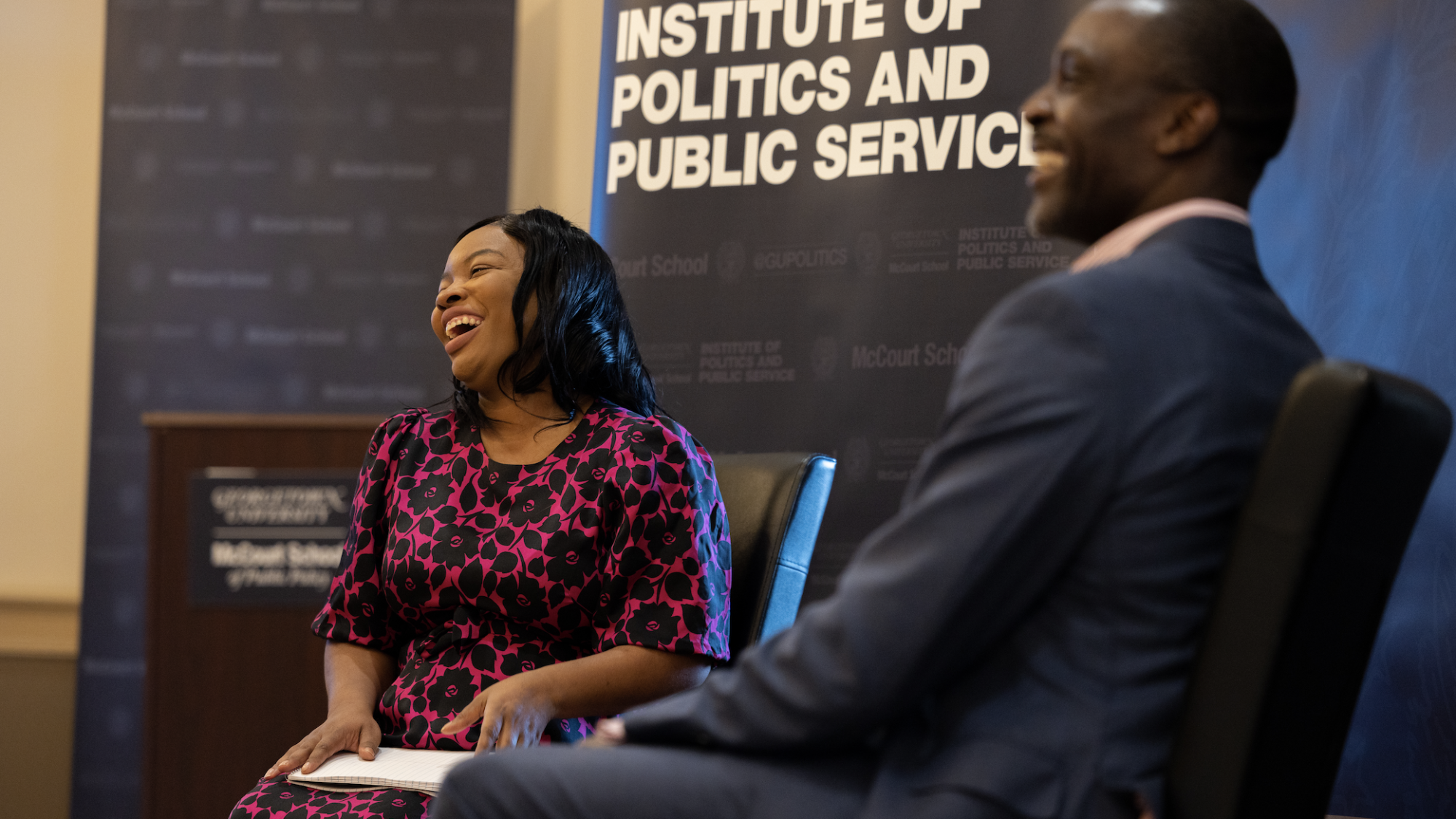On Tuesday, March 28, Eugene Scott, a political reporter for Axios and former GU Politics Spring 2018 Fellow, moderated a conversation with NPR Journalist Ayesha Rascoe about her work in uncovering the lesser known stories of the civil rights movement, told through her podcast “The Civil Rights Generation.”
The conversation began with an exploration as to why Rascoe decided to report on this topic. Her journey began as she questioned where the stories of civil rights activists were as the generation began to age. She feared the loss of these stories and these voices.
The stories often heard are those from civil rights leaders – such as Dr. Martin Luther King Jr. or Congressman John Lewis. But Rascoe wanted to uncover the stories of the everyday people who were doing their job and standing up. Her discussion with Scott was widely centered around the importance of personal journalism which has allowed her to hear new perspectives from the movement.
During the conversation, Scott shared that his parents were part of the civil rights movement – playing a crucial role in integrating schools in Oxford, North Carolina, which still had segregated homecoming courts when Scott was in high school. It is stories like Scott’s that are the foundation of Rascoe’s series and both noted this history is not as far back in the past as we often think, making this work important and relevant today given recent acts of racial injustice nationwide.
When asked how students can help facilitate this work, Roscoe responded by encouraging students to seek out this information and talk to the people in their community that were a part of this movement.
One story that Roscoe focused on was her conversation with Joanne Bland. Living in Selma, Alabama, Bland firsthand witnessed the atrocities that took place during Bloody Sunday, running into a church to escape the brutality of American racism as she watched her fellow marchers attacked in a place of worship. It is stories such as Bland’s that Rascoe is so committed to seeking out and bringing to light – especially during an era in which schools are facing immense pushback when trying to teach this history.
“We are at risk of losing even the most sanitized version of these stories,” says Scott.
The conversation shifted to present day civil rights work when discussing the importance of objectivity in journalism. During the Obama administration, Black journalists were placed at the forefront, and this allowed a cultural shift in the coverage of racism.
Scott recounted he initially did not expect to cover race in politics, and that the spiritual “We Shall Overcome ” would come to fruition. However, he said issues regarding racism, homophobia, xenophobia and sexism will always exist because there will always be people pushing back on the work towards equality in the United States. It is because of this there is greater emphasis on the importance of the work both Scott and Rascoe, as well as other journalist, as doing today.
In response to a student question about bringing identity and life experiences to interviews while still maintaining authenticity of the people she covers, Rascoe says we all bring our owned lived experiences to whatever we are covering at the moment.
“It enhances what we do,” she says.
This intimate discussion resonated with many students in attendance. Caleb Richmond (SFS ‘25), said he came to hear from journalists in the forefront of making change towards social justice and appreciates the personal perspective brought to Rascoe’s podcast.
Similarly, Leesa Danzek (C ‘26) said the discussion gave her further insight into the use of storytelling as a way to reconcile with the past and move toward change for the present.
